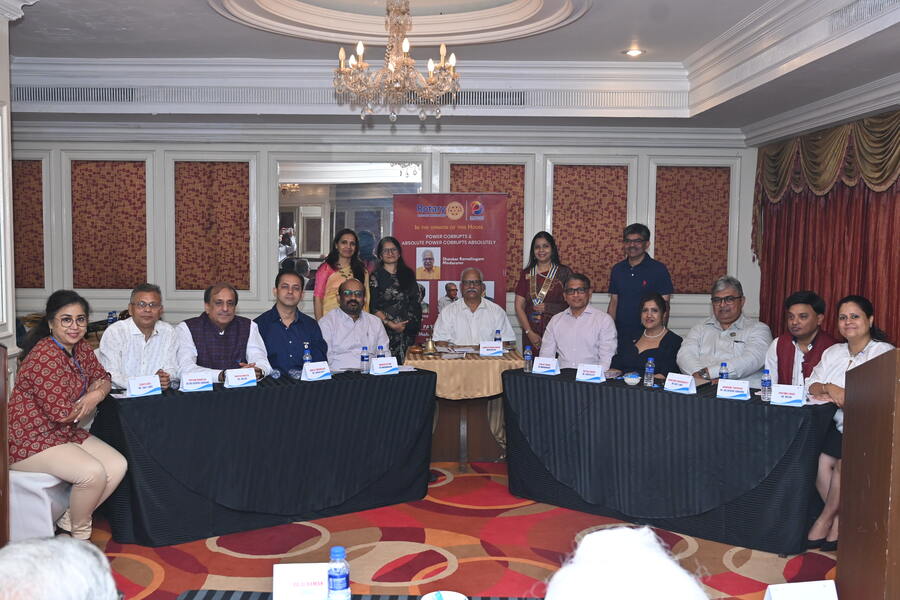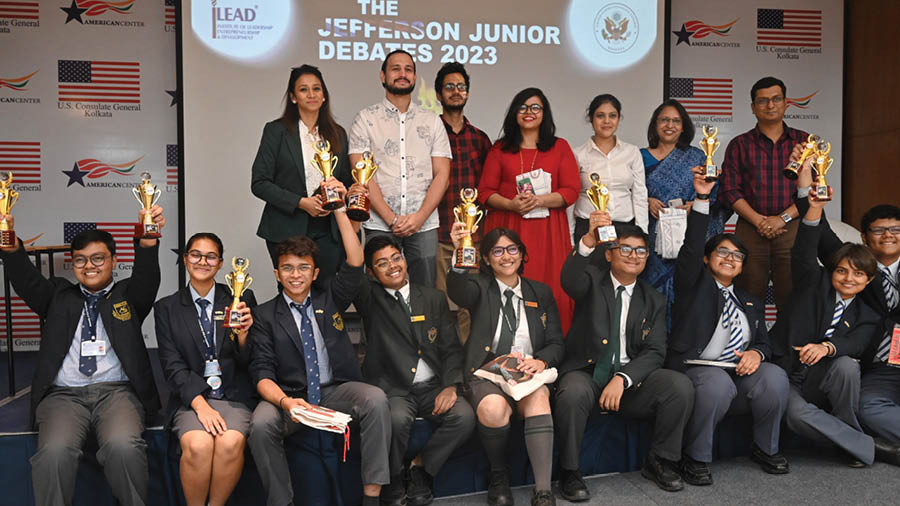Members from five clubs of the Rotary Club Bengal district gathered at Hotel Hindusthan International (HHI) on May 17 to argue on the motion: “Power corrupts, and absolute power corrupts absolutely”. Two representatives from each club spoke on the motion under the moderation of Shankar Ramalingam, a long-time debater, quizzer and moderator at both national and international levels.
The event was judged by Dolly Basu, an actress by passion; Raju Raman, a civil engineer; and Barry Antunis, a quizmaster and author. The speakers were assessed based on criteria like content, demeanour and language. The audience were also invited to ask questions during the rebuttal round.
Two members each from Rotary Club (RC) Mahanagar, Belur, Belvedere Gardens, Salt Lake and South City spoke on the motion. The top scorers, Manish Biyani and Sanjay Dugar, came from RC Mahanagar. The runners-up were Abhijit Mukherjee and Chytali Ghosh from RC South City.
‘Autonomy without accountability is dangerous’
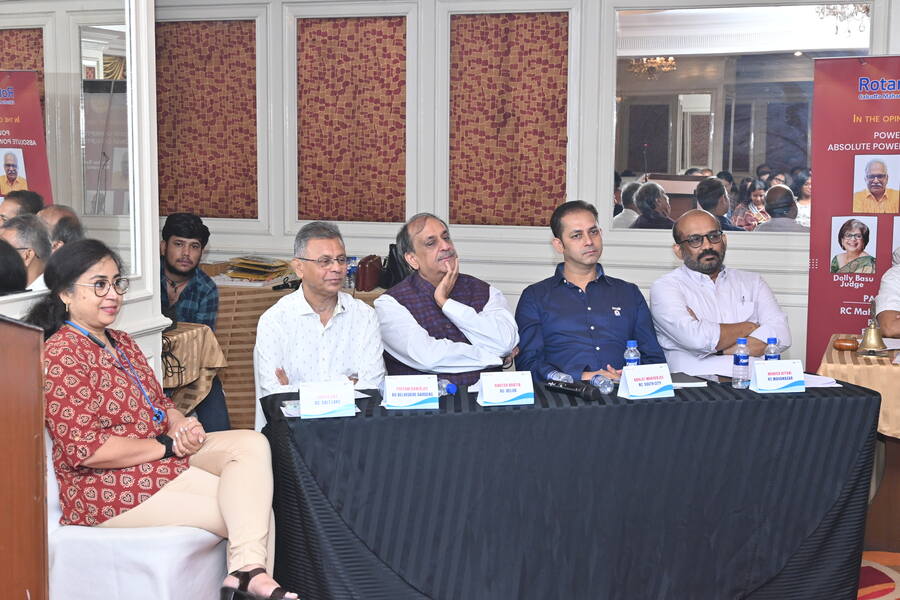
The proposition comprising (L-R) Eshita Das, Pritam Banerjee, Rakesh Bhatia, Abhijit Mukherjee and Manish Biyani
Among those that spoke for the motion, the consensus was that those in positions of power tend to misuse their power for personal benefit. Eshita Das, from RC Salt Lake, compared wielding power to playing with fire, saying that “humans, as the most intelligent beings, are the most prone to corruption”. Pritam Banerjee, from RC Belvedere Gardens, used the example of North Korea banning red lipstick to show how minute the expression of corruption by the powerful can be. RC South City’s Abhijit Mukherjee explained that “autonomy without accountability is dangerous”, which makes power and corruption go hand in hand. Rakesh Bhatia of RC Belur brought the politics of power to the grassroot levels, exemplifying his ideas through the role of teachers and government clerks.
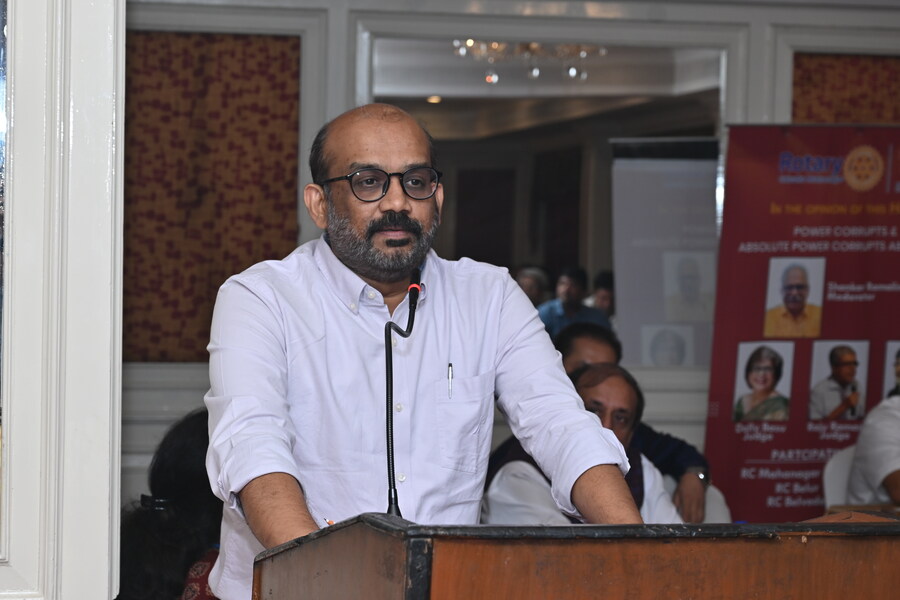
Manish Biyani was adjudged to be the best speaker on side proposition
Manish Biyani, who spoke in support of the motion, said: “Give a child a jar of candy, and tell them they can have as many as they want. Initially, there’s joy. But, eventually, they get a stomach ache…Power leads to downfall and chaos.” All the speakers for the proposition agreed that power creates tyrants if not checked.
‘Power is neutral, and only becomes moral based on who wields it’
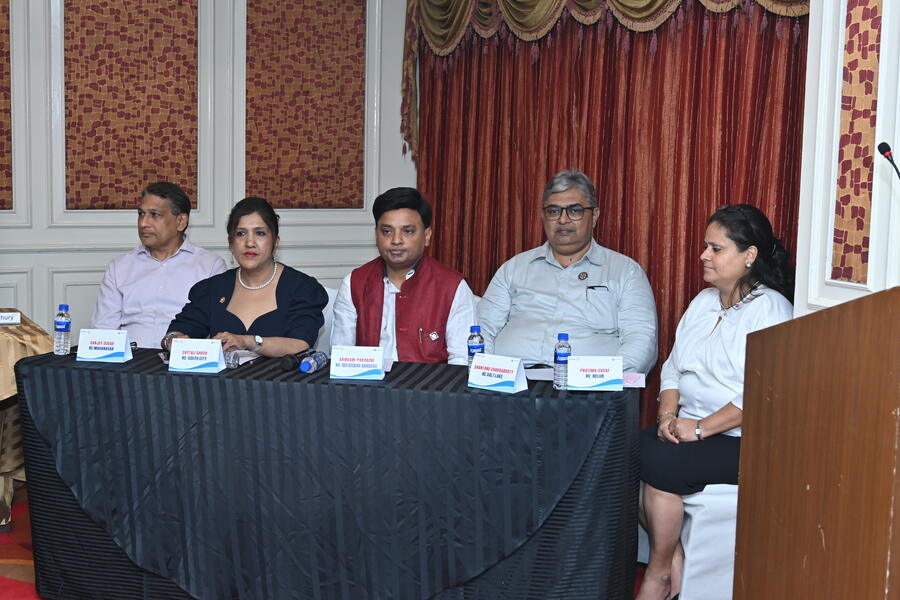
The opposition comprising (L-R) Sanjay Dugar, Chytali Ghosh, Arindam Pakrashi, Shantanu Chakraborty and Pratima Saraf
The consensus among the opposition was that not all powerful people are corrupt, and that power held by responsible leaders creates positive change. Examples from the 19th century characterised the speeches of Pratima Saraf from RC Belur and Arindam Pakrashi from RC Belvedere Gardens. Shantanu Chakraborty of RC Salt Lake explained that the motion is deeply subjective, and Chytali Ghosh of RC South City added that “power is neutral, and only becomes moral based on who wields it”.
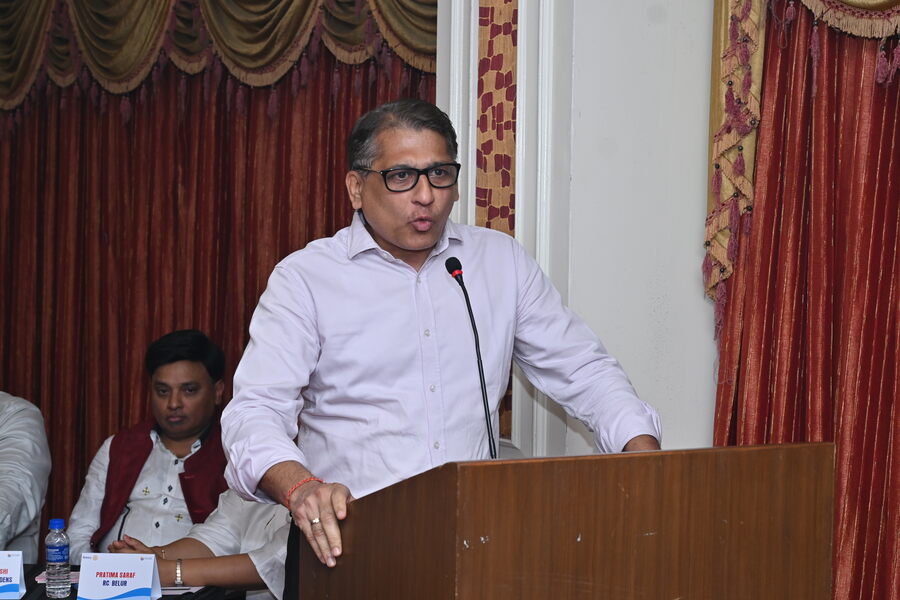
Sanjay Dugar was adjudged to be the best speaker on side opposition
Sanjay Dugar, as the final speaker, remarked that “power alone cannot corrupt; when it is associated with immorality and indiscipline, it gives birth to corruption”. The opposition agreed that powerful people and organisations, like the Rotary Club itself, have used their position and influence to bring about impact.
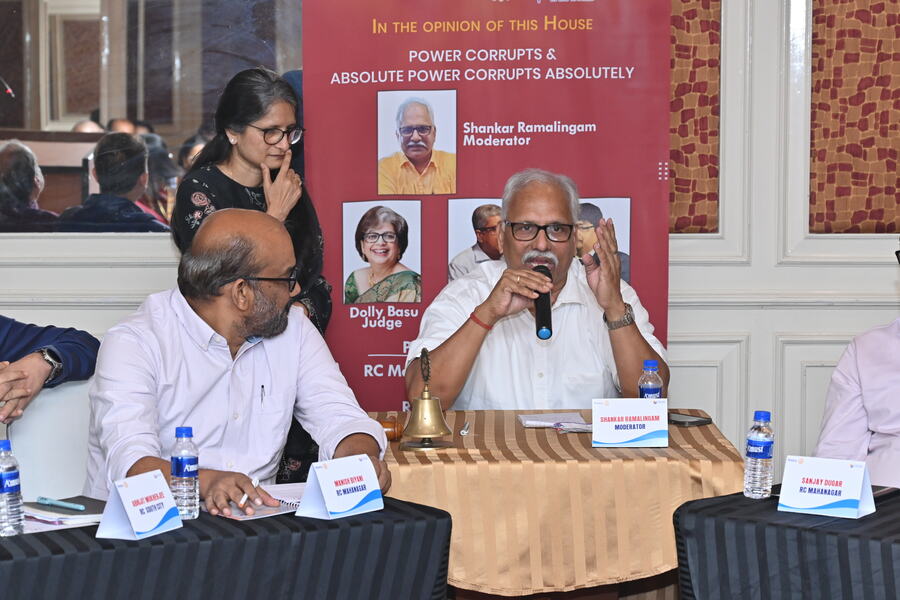
Veteran moderator Shankar Ramalingam was in charge of proceedings for the evening
The audience raised some vital counters to the speakers’ opinions. To make the event more engaging, an interactive quiz was held after each of the team’s speeches. The judges encouraged more such debates, and pointed out that speakers should not read out from prepared texts so as to engage and connect better with the audience. Raju Raman, in particular, enjoyed the various references to everyday life, pointing out that we debate on a daily basis, and that formally holding such debates can create meaningful discussion in society.
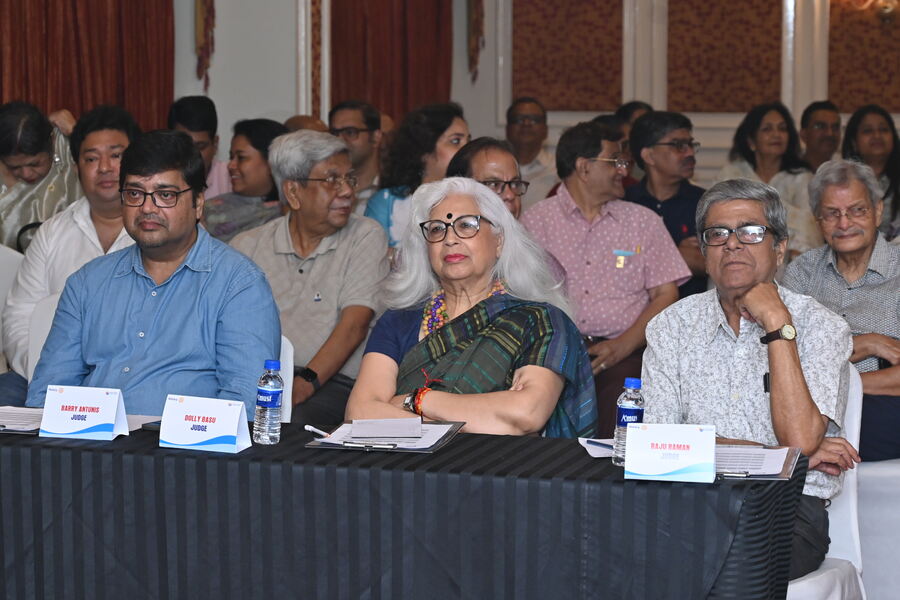
The adjudication panel for the debate comprising Barry Antunis, Dolly Basu and Raju Raman
The evening concluded with the announcement of the winners, with a few members from the audience invited to state their own opinions on the topic after the end of the formal competition.
